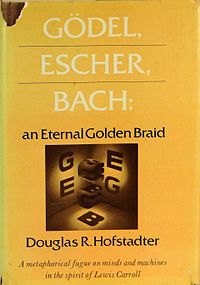Frederick The Great, King of Prussia, came to power in 1740. Although he is remembered in history books mostly for his military astuteness, he was also devoted to the life of the mind and spirit. His court in Potsdam was one of the great centers of intellectual activity in Europe in the eighteenth century. The celebrated mathematician Leonhard Euler spent twenty-five years there. Many other mathematicians and scientists came, as well as philosophers-including Voltaire and La Mettrie, who wrote some of their most influential works while there.
But music was Frederick's real love. He was an avid flutist and composer. Some of his compositions are occasionally performed even to this day. Frederick was one of the first patrons of the arts to recognize the virtues of the newly developed "piano-forte" ("soft-loud"). The piano had been developed in the first half of the eighteenth century as a modification of the harpsichord. The problem with the harpsichord was that pieces could only be played at a rather uniform loudness-there was no no way to strike one note more loudly than its neighbors. The "soft-loud", as it name implies, provided a remedy to this problem. From Italy, where Bartolommeo Cristofori had made the first one, the soft-loud idea had spread widely. Gottfried Silbermann, the foremost German organ builder of the day, was endeavoring to make a "perfect" piano-forte. Undoubtedly Kin Frederick was the greatest supporter of his efforts-it is said that the King owned as many as fifteen Silbermann pianos!
Bach
Frederick was an admirer of not only pianos, but also of an organist and composer by the name of J. S. Bach. This Bach's compositions were somewhat notorious. Some called them "turgid and confused", while others claimed they were incomparable masterpieces. But no one disputed Bach's ability to improvise on the organ. In those days, being an organist not only meant being able to play, but also to extemporize, and Bach was known far and wide for his remarkable extemporizations. (For some delightful anecdotes about Bach's extemporization, see The Bach Reader, by H. T. David and A. Mendel.)
In 1747, Bach was sixty-two, and his fame, as well as one of his sons, had reached Potsdam; in fact, Carl Philipp Emanuel Bach was the Capellmeister (choirmaster) at the court of King Frederick. For years the King had let it be known, through gentle hints to Philipp Emanuel, how pleased he would be to have the elder Bach come and pay him a visit; but this wish had never been realizede. Frederick was particularly eager for Bach to try out his new Silbermann pianos, which he (Frederick) correctly foresaw as the great new wave in music.
It was Frederick's custom to have evening concerts of chamber music in his court. Often he himself would be the soloist in a concerto for flute. Here we have reproduced a painting of such an evening by the German painter Adolph von Menzel, who, in the 1800's, made a seires of paintings illustrating the life of Frederick the Great. At the cembalo is C. P. E. Bach, and the figure furthest to the right is Joachim Quantz, the King's flute master-the only person allowed to find fault with the King's flute playing. One May evening in 1747, an unexpected guest showed up. Johann Nikolaus Forkel, one of Bach's earliest biographers, tells the story as follows:
